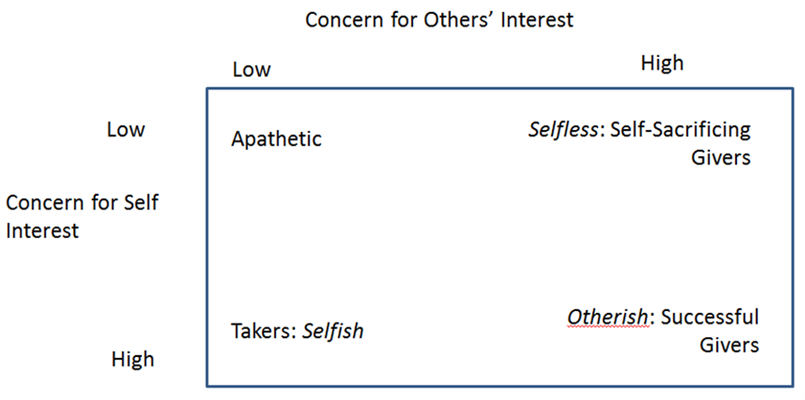Daily life can be demanding. Work. Family. Bills. Deadlines. Dishes. Sometimes it feels overwhelming, especially if you fall into the trap of focusing too much on others’ needs.
This challenge is common among caregivers like nurses and teachers. Also, many women struggle with it, in part due to all the expectations they encounter around nurturing, caregiving, and supporting homes and families. But it can affect anybody, especially those wired to give. This trap can result in empathy overload, compassion fatigue, and giver burnout.
Signs of being too focused on others’ needs include difficulty setting boundaries, struggling with saying “no,” internalizing others’ emotions, feeling responsible for fixing other people’s issues, and losing yourself in relationships. These habits can become ingrained.
The Problem with Being Too Focused on Others
Focusing too much on others’ needs can lead to neglecting your own needs, harming your health, and feeling exhaustion or burnout. It may also pull you away from pursuing your own goals. It may even lead to an addiction to helping others that inhibits your own healthy functioning.
How to Avoid the Trap of Focusing Too Much on Others’ Needs
What to do about it? Here are 14 things you can do to avoid this trap:
1. Recognize that sacrificing yourself to help others isn’t sustainable. Be warned: troubles lie ahead if you continue down this path.
2. Create separation and distance between yourself and others when needed. Remove yourself from these situations when you can.
3. Designate times to enjoy life free and clear without the press of outside needs and obligations. Go for a walk. Read a book. Watch a movie. Choose activities that bring you joy. Make time for renewal and sanctuary.
4. Get better at setting boundaries and saying “no.” State clearly that you can’t help right now. Since you’re human, you have limits. Honor that so you can thrive personally and have the energy to continue helping others.
5. Develop a shield. University of Miami psychologist Heidi Allespach advocates for medical residents to cultivate what she terms a “semi-permeable membrane” around their hearts. This counsel extends to anyone grappling with compassion fatigue. She explains, “Without enough of a shield, everything just comes in.”
6. Reduce the extent of your assistance when needed. Remember that looking after someone doesn’t equate to swooping in to save them. Understand that even the smallest gestures can have a significant impact. People can feel upheld and comforted even by small acts of kindness and connection. They might not even need or want a ton of help. Sometimes, a simple visit, call, text, or meal can mean a lot.
7. Enlist the support of others, ensuring you’re not alone in providing help. Bringing a network of helpers is likely to lift the person’s spirits and ease your own load in the process.
8. Clarify what you need from others and ask for it directly even as you’re providing help. Don’t hesitate to articulate your own needs and requests while also being generous towards others. Master the art of advocating for yourself so you can continue helping effectively.
9. Try “cognitive reappraisal”—reframing how you see a situation involving someone in need. Rather than assuming people will suffer or fail without your assistance, imagine how they might cultivate fresh coping mechanisms that will help them help themselves in the future.
10. Imagine a friend experiencing compassion fatigue (and feeling guilt for not being able to help more). You’d probably advise them to give themselves grace and take care of themselves first.
11. Prioritize self-care practices. Eat well. Move your body. Get a good night’s sleep and make sure you have a good and regular sleep routine. Spend more time outside. Take regular breaks. Meditate. Try journaling. If you don’t take good care of yourself, how can you take good care of others?
12. Guard your heart and don’t let yourself get to the point of empathy overload or compassion fatigue. Pay attention to the emotions that arise when you witness others’ suffering. Allow these emotions to pass through you. Acknowledge them without clinging to them. This practice can help you stay grounded in the present moment with equanimity.
13. Connect with family and friends. The research unequivocally points to the profound advantages of healthy relationships. They play a pivotal role in enhancing your happiness and fulfillment.
14. Preserve your time and energy for the others you care about and who rely on you. Focusing too much on assisting one person in need may hinder your ability to support others, including your family or colleagues. And it may detract from other important tasks.
In the end, the solution isn’t being selfish or neglecting others. It’s about taking care of yourself so you can maintain the energy and stamina to keep helping others.
Tools for You
- Traps Test (Common Traps of Living) to help you identify what’s getting in the way of your happiness and quality of life
- Quality of Life Assessment to help you discover your strongest areas and the areas that need work and then act accordingly
- Personal Values Exercise to help you clarify what’s most important to you
Related Articles
- The Trap of Losing Yourself
- The Trap of Caring Too Much About What Other People Think
- The Hidden Trap Catching Many High Achievers: Neediness
Postscript: Quotations
- “Don’t lose yourself trying to be everything to everyone.” -Tony Gaskins
- “Many of us find that we have squandered our own creative energies by investing disproportionately in the lives, hopes, dreams, and plans of others. Their lives have obscured and detoured our own.” -Julia Cameron, The Artist’s Way
- “It’s OK to do what is YOURS to do. Say what’s yours to say. Care about what’s yours to care about.” -Nadia Bolz-Weber, Lutheran minister
++++++++++++++++++++++++++++++
Gregg Vanourek is a writer, teacher, and TEDx speaker on personal development and leadership. He is co-author of three books, including LIFE Entrepreneurs: Ordinary People Creating Extraordinary Lives (a manifesto for integrating our life and work with purpose, passion, and contribution) and Triple Crown Leadership: Building Excellent, Ethical, and Enduring Organizations (a winner of the International Book Awards). Check out his Best Articles or get his monthly newsletter. If you found value in this article, please forward it to a friend. Every little bit helps!








